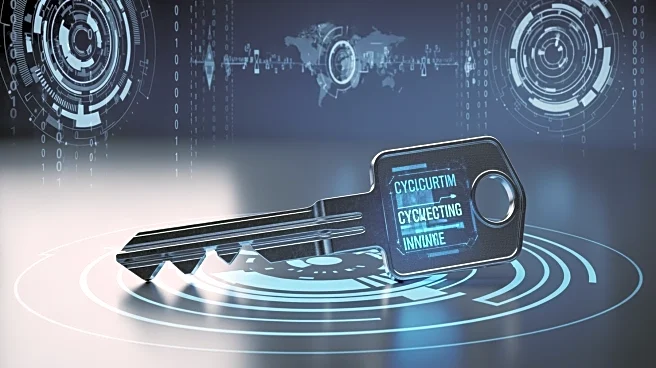What's Happening?
Louisiana has developed a novel approach to address the cybersecurity talent gap by creating a self-improving workforce ecosystem. This initiative involves a partnership between Louisiana State University
(LSU), Splunk, Amazon Web Services (AWS), and TekStream. The program integrates students into the state's Security Operations Center (SOC) as part of their education, allowing them to gain practical experience while contributing to the state's cybersecurity efforts. Students start working in the SOC as sophomores, undergoing a six-week onboarding and training period. The program emphasizes continuous improvement and measurable outcomes, transforming student-run SOCs into integral components of the state's cyber defense strategy.
Why It's Important?
This initiative is significant as it addresses two critical issues: the shortage of cybersecurity professionals and the high cost of maintaining a robust cyber defense. By embedding students in real-world cybersecurity roles, Louisiana not only enhances its cyber defense capabilities but also creates a pipeline of skilled professionals ready to enter the workforce upon graduation. This model offers a cost-effective solution for state agencies, reducing reliance on expensive external contractors and providing taxpayer savings. It also serves as a replicable model for other states, demonstrating how public-private partnerships can effectively address workforce shortages and improve state resilience.
What's Next?
As other states look to replicate Louisiana's success, TekStream is assisting in building similar ecosystems. The program's expansion could lead to shorter adoption timelines and improved productivity metrics. The initiative's success depends on continued collaboration between universities, state agencies, and private partners. The model's scalability and adaptability will be tested as more states join, potentially leading to a nationwide network of student-run SOCs that enhance the country's overall cybersecurity posture.
Beyond the Headlines
This approach highlights the potential of treating educational institutions as active participants in state operations rather than isolated training grounds. By integrating students into the state's cyber defense network, the program not only enhances security but also fosters a culture of continuous learning and improvement. This model could redefine how states approach workforce development, emphasizing the importance of practical experience and real-world application in education.










